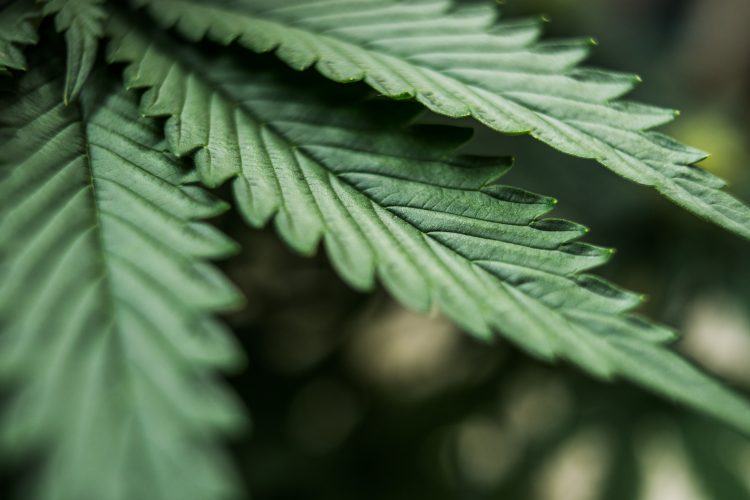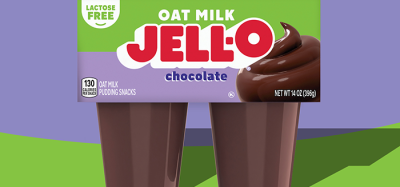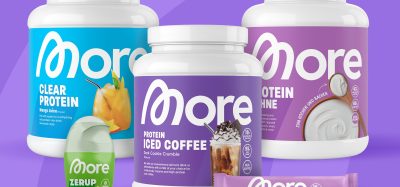An industry perspective on CBD
- Like
- Digg
- Del
- Tumblr
- VKontakte
- Buffer
- Love This
- Odnoklassniki
- Meneame
- Blogger
- Amazon
- Yahoo Mail
- Gmail
- AOL
- Newsvine
- HackerNews
- Evernote
- MySpace
- Mail.ru
- Viadeo
- Line
- Comments
- Yummly
- SMS
- Viber
- Telegram
- Subscribe
- Skype
- Facebook Messenger
- Kakao
- LiveJournal
- Yammer
- Edgar
- Fintel
- Mix
- Instapaper
- Copy Link
Posted: 8 January 2020 | John Wallace – Managing Director at Mile High Labs International Ltd | No comments yet
John Wallace, Managing Director at Mile High Labs International Limited, shares his thoughts on the CBD market…


The CBD industry
Every supplier worth their salt needs to be able to ensure that customers are assured on quality, purity, security of supply, accurate labelling, pricing and adherence to regulatory
standards. However, not every player in the market is doing so, and that is why manufacturers must pay close attention to the practices and ethos of their suppliers, particularly in a situation where regulation is catching up with demand.
Therefore, from an industry reputation and consumer safety point of view, I do have concerns. These focus primarily on the growth of the market without a correspondingly robust regulatory framework, adequate labelling and an agreed best practice for manufacture across the industry. Things are improving however, and we welcome the launch of the Association of Cannabinoid Industry’s Charter, which requires companies to sign up to far more stringent levels of regulation.
The CBD market
The US Food and Drug Administration (FDA) and the UK Food Standards Agency (FSA) both recognise the significant public interest in cannabis and cannabis-derived compounds.


According to a statement released by Brightfield Group, the CBD market is projected to reach $22 billion by 2022, and hemp cultivation in the US tripled in 2018 with the passage of the Farm Bill.
Market research commissioned by the Centre for Medicinal Cannabis in London estimates that the CBD market is currently one of the fastest growing wellbeing product categories in the UK. At this current rate, by 2025, it will be worth almost £1bn per annum, equivalent in size to the current UK herbal supplement market.
Outside of the United States, Mile High’s European operation has enjoyed a period of rapid growth since it opened its headquarters in Belfast earlier this year. From a standing start in March, the company has now employed 23 staff, with 15 based at the Belfast office and eight in London.
Many unanswered questions about the science, safety and quality of products containing CBD remain, but that is changing, with more research being commissioned and curious consumers asking more questions. As we move forward, we are excited to work constructively with the authorities across Europe and America and take the industry to the next level.
Trends in CBD-infused food and drink
Even though the CBD market is very new, there are already some perceivable trends – in particular, a move towards CBD-infused drinks, food supplements and additives.
There are dozens of new food and beverage products on the market, with specialist cafés serving CBD dishes and even a launch of a CBD-infused spring water. There are CBD-imbued truffles and croissants, CBD-soaked granola energy bars, peanuts, dessert slices with a CBD coconut biscuit base, hemp caramel and chocolate ganache – the list goes on. Many industry observers now see CBD as a desirable ingredient to add new life to a current product or an opportunity to launch an entirely new product category, hence the growth of the CBD beverage market.
Earlier this year, Mile High announced the launch of CBD Water Soluble Liquids. These are made by dissolving CBD isolate or distillate into a colourless, flavourless, naturally-derived oil and then creating nanoscopic droplets of that oil with a high-pressure emulsifier. The result is a high-quality, stable additive with virtually no effect on colour, taste or mouthfeel.
Mile High Labs’ product developers spent many months on R&D, and even invested in advanced emulsification technology to create the desired end product.
CBD and novel foods categorisation
In January 2019, the European Commission updated the Novel Food Catalogue to state that extracts of cannabis sativa L. and derived products containing cannabinoids are considered as novel foods, as a history of consumption has not been demonstrated. As a result, all extracts of hemp and derived products containing cannabinoids (including CBD) are now regarded by the European Commission as ‘novel’. This categorisation applies to the extracts themselves and any products to which they are added as an ingredient (such as hemp seed oil). Synthetically obtained cannabinoids are also considered to be novel.
The Novel Food Catalogue is not legally binding but is used as a reference by many authorities in the EU for the purposes of the Novel Food Regulation ((EU) 2015/2283). This change to the Novel Food Catalogue may mean that authorities in the member states refuse to permit supply of foods and food supplements containing cannabinoids, pending formal approval by the European Food Standards Agency (EFSA) under the Novel Food Regulation.
Mile High is now well into the preparation of our Novel Foods application.
Blockchain, traceability and CBD
The Mile High Labs approach to every challenge and issue within the industry is to find the optimum solution and implement it. For example, earlier this year, we unveiled supply chain innovations aimed at further increasing transparency and bolstering consumer trust in the emerging CBD industry.
We have also launched our Client Portal, which uses blockchain technology to provide on-demand compliance documentation, including Certificates of Analysis, Safety Data Sheets and Harvest Information. These documents enable customers to review data from product testing and trace the origin of the product to the corresponding hemp and production batches. We can trace every batch of our products from the seed to the shelf and assure customers that our products reach them in the same pure form they were in when they left our plant.
The company has partnered with Chain.io to utilise its supply chain connectivity platform, ‘Vault’, which leverages the power of the blockchain to provide strong, auditable proof for documentation authorisation and audits.
Vault lets Mile High, and other companies who may choose in future to make investments in this field, to upload documents in any format and, once uploaded, Chain.io writes an encrypted version of the document, which cannot be altered, and sends it to a public domain.
Conclusion
There are exciting times ahead in the food and beverage industry, as CBD-infused products increasingly become a normal part of the market. Some trends will take root, others will wither on the vine, but it is the suppliers who gain and retain the trust of their customers that will flourish. Trust in the product, the manufacturing process, security of supply and the labelling are basic elements in the relationship between supplier and customer.
About the author


John began his career in sales before working for Her Majesties’ Coastguard for 11 years, patrolling the sea off Northern Ireland and Scotland’s coastline. He then started and ran a range of IT companies.









